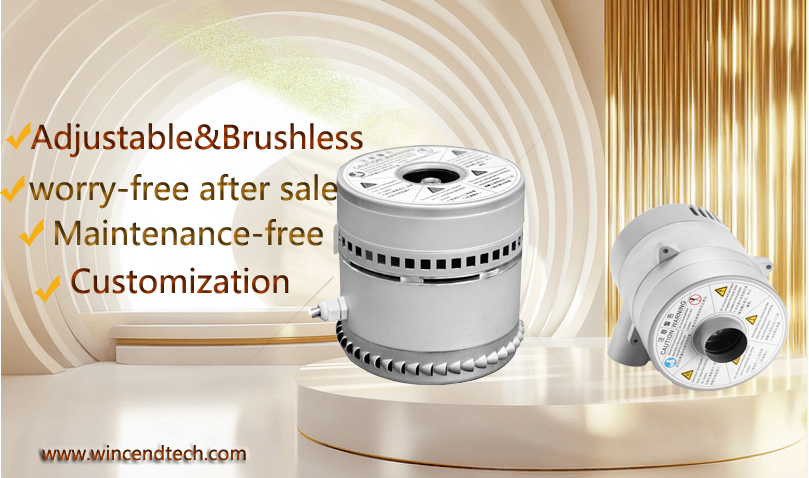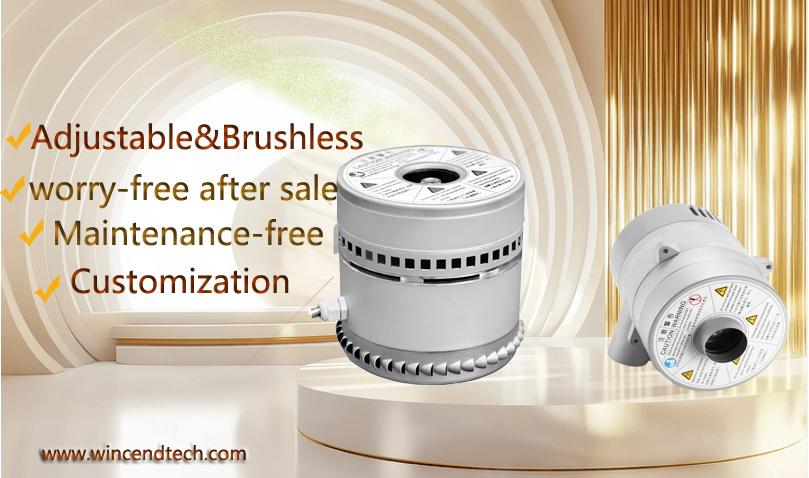In the ever-evolving landscape of healthcare, technological advancements play a pivotal role in enhancing patient care and safety. Among these innovations, industrial air blowers have emerged as a critical component in optimizing medical environments. These devices, often overlooked, are indispensable in ensuring the functionality and efficiency of various medical equipment.

Industrial Air Blowers
Industrial Air Blowers are widely used in the medical field, including ventilators, disinfection equipment, medical insurance devices, and more. Their versatility and reliability make them a cornerstone of modern medical technology.
Ventilators
Ventilators, perhaps the most critical application of industrial air blowers in medicine, are life-saving devices for patients unable to breathe independently. Industrial air blowers provide the necessary airflow and pressure regulation to ensure proper ventilation. Their precision and dependability are paramount, as even slight variations can have severe consequences for patients. By maintaining a consistent and controlled supply of oxygen, these blowers support respiratory function and facilitate patient recovery.
Moreover, advanced ventilator models equipped with industrial air blowers often incorporate features such as humidification and heated wire circuits to mimic natural breathing processes more closely. This enhances patient comfort and reduces the risk of respiratory complications, further underscoring the importance of these blowers in optimizing ventilator performance.
Disinfection Equipment
Infection control is a cornerstone of medical practice, and industrial air blowers play a vital role in disinfection equipment. High-efficiency particulate air (HEPA) filters, powered by industrial blowers, are found in air purification systems that remove contaminants from the air, including bacteria, viruses, and allergens. These systems create a cleaner, safer environment for patients and staff, reducing the incidence of nosocomial infections.
Furthermore, industrial air blowers are instrumental in the operation of UV-C light disinfection robots and other automated cleaning devices. By circulating air past UV-C lamps, these blowers ensure thorough sterilization of surfaces and airspaces, providing an additional layer of protection against pathogens.
Medical Insurance Devices
Industrial air blowers are also crucial in medical insurance devices, such as anesthesia machines and hemodialysis systems. In anesthesia machines, blowers maintain precise gas mixtures, ensuring patients receive the correct concentration of anesthetics and respiratory gases. This precision is essential for patient safety during surgical procedures.
Similarly, hemodialysis machines rely on industrial air blowers to regulate blood flow and dialysate pressure, crucial for efficient toxin removal and fluid balance management in patients with renal failure. The reliability of these blowers directly impacts the efficacy of hemodialysis treatment and patient outcomes.
Enhancing Medical Environments: Beyond Equipment
Beyond their direct applications in medical equipment, industrial air blowers contribute to the overall optimization of medical environments in several indirect ways. For instance, they play a role in climate control systems, maintaining optimal temperature and humidity levels that promote patient comfort and healing. Comfortable environments reduce stress and anxiety, facilitating better patient-caregiver communication and cooperation.
Moreover, industrial air blowers are often used in laboratory settings to power fume hoods and biosafety cabinets, crucial for protecting researchers and staff from hazardous materials. This ensures a safer workplace and supports high-quality medical research and development.
As medical technology continues to advance, the role of industrial air blowers in optimizing medical environments will only grow more significant. Innovations in blower design and efficiency will lead to even more sophisticated and reliable medical equipment. For example, the development of energy-efficient blowers can reduce operational costs and environmental impact, aligning with sustainability goals in healthcare.
Furthermore, as the medical field increasingly adopts smart technologies and IoT (Internet of Things) solutions, industrial air blowers will become integral components in interconnected systems that monitor, control, and optimize medical environments in real-time. This integration will enhance patient safety, comfort, and satisfaction, driving the future of healthcare towards more personalized and efficient care models.
In conclusion, industrial air blowers are indispensable in the medical field, contributing to the functionality, reliability, and efficiency of critical medical equipment. Their widespread use in ventilators, disinfection equipment, and medical insurance devices underscores their significance in optimizing medical environments and providing better medical security for patients. As technological advancements continue, the role of these blowers will only expand, shaping the future of healthcare for the better.
https://www.wincendtech.com/how-industrial-air-blower-can-help-optimize-medical-environments.html

